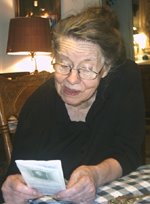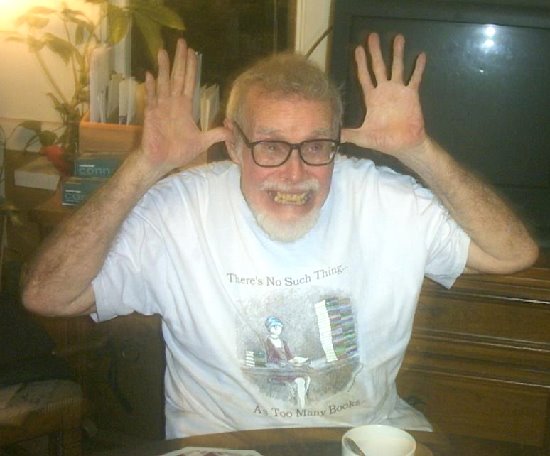Ellen was plump, juicy, and innocent. Her greetings to me
at the apartment were always cursory; she was there to have sex with Chip. I felt no sympathy now as she cried out in the throes of realizing that was all he’d wanted,
although perhaps I should have. The whole thing had lasted three weeks, and they’d been
very noisy. I supposed he was a good lover, but I didn’t need to be kept awake
every other night. My “medicinal” apricot brandy and milk helped, but I didn’t
like being reminded that I myself had been similarly innocent, vulnerable, and
infected with romantic expectations.
Perhaps things are different in the 21st century,
and women don’t automatically feel they are in “a relationship” that has facets
other than sexual (when those facets aren’t actually manifested). “I know he
loves me. I can see it in his eyes,” says one stereotypical young woman in
love. “He hasn’t said anything
about it, but I have this feeling we will be together; I have this feeling I
will have children with him someday,” thinks another. Perhaps these (hypothetical and historical) young women
know that if they'd said anything explicit about these notions to the lover,
they’d be confronting him with the prospect of lying to continue pleasant sexual activities. So the women keep silent, hoping, expecting. "If I
feel so strongly about what’s happening, he must, too!" And the delusion
continues until it's shattered.
It’s happened to me. True, it was long ago, but I get
reminders every now and then, sometimes from female students I deal with at my
job, sometimes from women friends who should know better. I also get reminders
that it’s not as easy for some males as it was for Chip, whose slender good
looks and naturally sardonic delivery of self-deprecating jokery touched by sadness from big, brown, half-closed eyes made him self-aware bait. Yes, there are young men, too, who have
problems merely getting started. Their heartbreak is non-specific. Loss
seeps into their lives from an imagined lonely future. But that’s not what I’m
talking about right now.
 I cried Ellen's way too once, to someone over the phone with whom
I’d lived. I imagined that we were still together (despite our separation while
he recovered from a minor motorcycle accident). When he told me he was now with
someone else, I felt helpless, abandoned. “But what am I gonna doooooo?” I
wailed, even though I had a roof over my head, competent roommates, a job, and
some comforting pets. The person with sexual
“responsibility” for me was relinquishing that responsibility. I was lost. I
had suddenly lost my sexuality and my romantic role. Why did that mean more to
me than anything else at that time?
I cried Ellen's way too once, to someone over the phone with whom
I’d lived. I imagined that we were still together (despite our separation while
he recovered from a minor motorcycle accident). When he told me he was now with
someone else, I felt helpless, abandoned. “But what am I gonna doooooo?” I
wailed, even though I had a roof over my head, competent roommates, a job, and
some comforting pets. The person with sexual
“responsibility” for me was relinquishing that responsibility. I was lost. I
had suddenly lost my sexuality and my romantic role. Why did that mean more to
me than anything else at that time?
My subsequent involvement with a man had an even more
painful demise, since I again delegated sexual responsibility to the guy,
eventually ascribing some very bad behavior on my part to his influence. When he left, I
had to take a unrosy look at myself.
Maybe it was the way girls were raised in the 1950s and
1960s that made us vulnerable to putting all our “eggs” in one basket, I don’t
know. I wish I’d known that I was fine as I was, whether or not I was in a
“relationship.” I wish I had been taught that sexual feelings were OK, and
didn’t need to “belong” to one man, necessarily, at least in youth and young
adulthood. I couldn’t even feel that I had any sexuality at all when I was
alone, and we now know that’s not right!
Do girls these days have it easier? Of course heartbreak still
exists, for women and men. But I don’t know if there’s that feeling of the
bottom dropping out of life itself when a lover leaves; that cry to which I
eventually became unsympathetic and cold, even toward myself and my long-ago
weaknesses: “You can’t do this to me! I love you! What am I gonna dooooo?”Shape up, woman! Shouldn’t a loving relationship be a want rather than a need? The whipped cream on the top of an already delicious life? Why were we—are we—so friggin’ WEAK?





